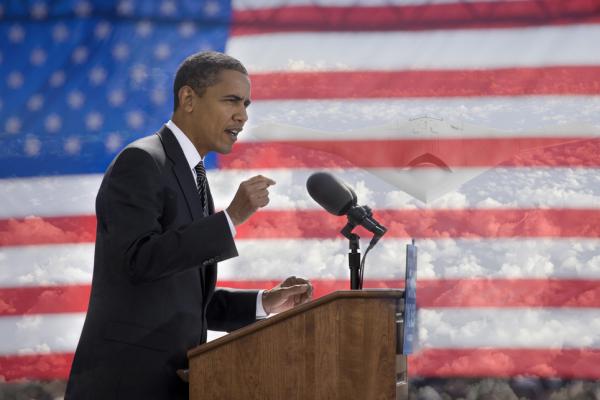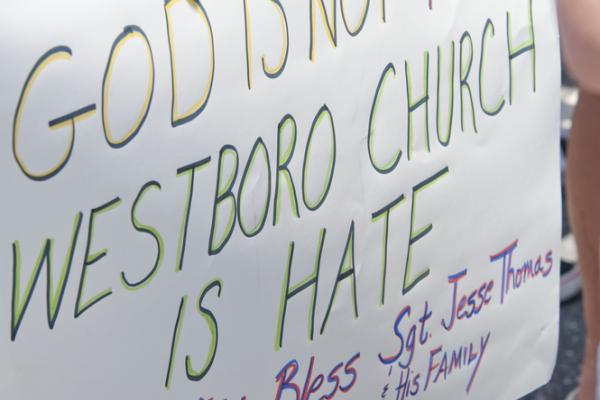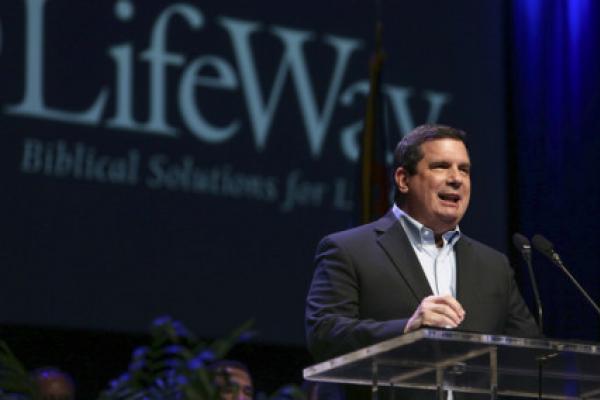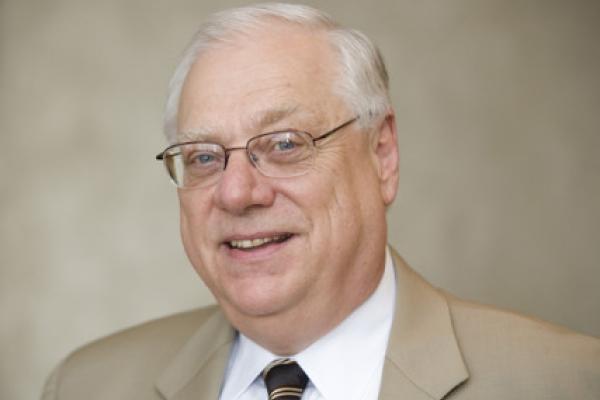As the news of Renisha McBride’s death has spread, so has public outrage over the seemingly endless shootings of unarmed black people.
For centuries, followers of Jesus have wondered how they should relate to states and governments. Recent documents from Amnesty International, Human Rights Watch, and the United Nations bring such concerns to the fore, highlighting the cruel collateral damage of many of President Barack Obama’s personally ordered drone strikes — strikes that according to the president, are legal and in accord with international law, use technology that is precise and limit unnecessary casualties, eliminate people that are real threats, and prevent greater violence.
Rather than considering the humanity of our (perceived) enemies and seeking reconciliation and restorative justice, we default to catching and killing. In doing so, we give the widest berth possible to Jesus's teachings and examples of self-sacrificial enemy love. In both Matthew 5 and Luke 6, Jesus tells us that to love our enemies is to be children of God, for radical love and kindness are his nature and his perfection. Loving enemies is essential to anyone who would claim God as his or her Father. Jesus said, "Love." Not, "Love unless you happen to be the ones in charge and in possession of firepower. In that case, kill the bastards."
We are charged with loving our world indiscriminately, self-sacrificially, and with great humility, and that should always inform our relationship with the state and government.
Churches are expected to provide products and services, where worship styles, start times, and preaching methods are supposed to cater to our individual wants and needs — we expect perfection, and when it inevitably doesn’t happen, we create conflict.
Our desire to critique and confront everything we view as being wrong, combined with our insatiable appetite for drama, has created the perfect environment for controversy. Since we’re the customers, we assume we’re always 100 percent right — or should be treated as though we are — even when we’re not. Church leaders now spend more time trying to placate parishioners than they do facilitating world-changing ministry. ... Theologians and pastors seemingly make a living disagreeing with one another. Instead of being a gospel of unification, we use Jesus to divide and conquer.
The president of Southern Baptist retailer LifeWay Christian Resources has apologized for publishing Vacation Bible School material nearly 10 years ago that “used racial stereotypes that offended many in the Asian American community.”
Thom Rainer, who became president and CEO in 2006, said Wednesday in a video message at the Mosaix conference in Long Beach, Calif., that the “Rickshaw Rally” curriculum is “still a point of hurt for some.”
“I am sincerely sorry stereotypes were used in our materials, and I apologize for the pain they caused,” Rainer said.
The Supreme Court struggled Wednesday with a case that asks whether government bodies can open with prayers that some people find overly religious and excluding.
From their lines of questioning, it’s unclear whether the court is ready to write new rules on what sort of prayer falls outside constitutional bounds. And more than one of the justices noted that just before they took their seats, a court officer declared: “God save the United States and this honorable court.”
Few court watchers believe the justices will rule all civic prayers unconstitutional — the nation has a long history of convening legislative bodies with such language.
Rather, the question raised by Town of Greece v. Galloway is how sectarian these prayers can get.
Theological education has increasingly left brick-and-mortar schools and headed back to congregations and family homes as more seminarians study online.
“The old move — uproot your family, get a new job, move to the seminary — that model isn’t working for so many people today,” said Ronald Hawkins, vice provost at Liberty University, which has around 9,000 students in its online seminary.
“They are looking for a way to increase their biblical theological knowledge, to expand their ministry skills and to remain within the context of the ministry setting.”
Despite “huge” hesitancy to allow online theological degrees, online education is growing, said Daniel Aleshire, executive director of the Association of Theological Schools, the main accrediting body for more than 270 seminaries and graduate schools.
In the Hebrew and Christian scriptures, there is a Psalm that proclaims: “the earth is the Lord’s and everything in it, the world, and all who live in it” (Psalm 24:1). There is no part of this world that God is not aware of, cannot lay claim to, and does not rule. Christians affirm that as people of faith we’re called to be stewards over creation, answering one day for how we’ve treated the earth.
And part of that stewardship means understanding how this world works and what it needs in order to thrive. Unfortunately the din of our political ideologies has too often drowned out the biblical calling to care for creation.
In Texas, the State Board of Education will recommend new textbooks for all its students—and because it has such a large population, what they decide could determine what students in other states learn about science. There are several ideologues submitting textbook critiques to the board and their reviews will factor into each book’s overall score and likelihood of being approved by the school board. These ideologues could block the use of textbooks that teach the reality of climate change for the whole country’s public school students.





